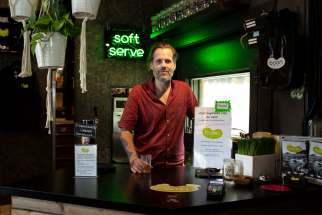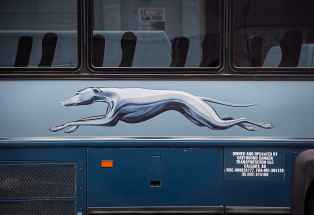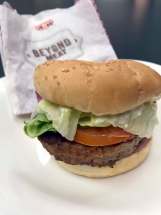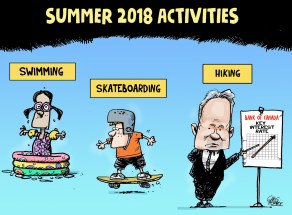The costs of going cashless What's in your wallet? West Broadway vegan restaurant accepts only digital payments
Read this article for free:
or
Already have an account? Log in here »
To continue reading, please subscribe:
Monthly Digital Subscription
$0 for the first 4 weeks*
- Enjoy unlimited reading on winnipegfreepress.com
- Read the E-Edition, our digital replica newspaper
- Access News Break, our award-winning app
- Play interactive puzzles
*No charge for 4 weeks then price increases to the regular rate of $19.00 plus GST every four weeks. Offer available to new and qualified returning subscribers only. Cancel any time.
Monthly Digital Subscription
$4.75/week*
- Enjoy unlimited reading on winnipegfreepress.com
- Read the E-Edition, our digital replica newspaper
- Access News Break, our award-winning app
- Play interactive puzzles
*Billed as $19 plus GST every four weeks. Cancel any time.
To continue reading, please subscribe:
Add Free Press access to your Brandon Sun subscription for only an additional
$1 for the first 4 weeks*
*Your next subscription payment will increase by $1.00 and you will be charged $16.99 plus GST for four weeks. After four weeks, your payment will increase to $23.99 plus GST every four weeks.
Read unlimited articles for free today:
or
Already have an account? Log in here »
Hey there, time traveller!
This article was published 13/07/2018 (2705 days ago), so information in it may no longer be current.
Boon Burger owner Tomas Sohlberg treats cash the same way he treats meat at his vegan restaurant — both are not on the menu.
In fact, the Sherbrook Street burger spot stopped accepting cold, hard cash in May.
“There are very, very few people that come in who are basically wearing their tin foil helmets and don’t have cellphones or credit cards or debit cards and say, ‘I only have cash,’” said Sohlberg, whose restaurant has a strictly vegan menu consisting of black bean burgers and “cheeze” poutines.
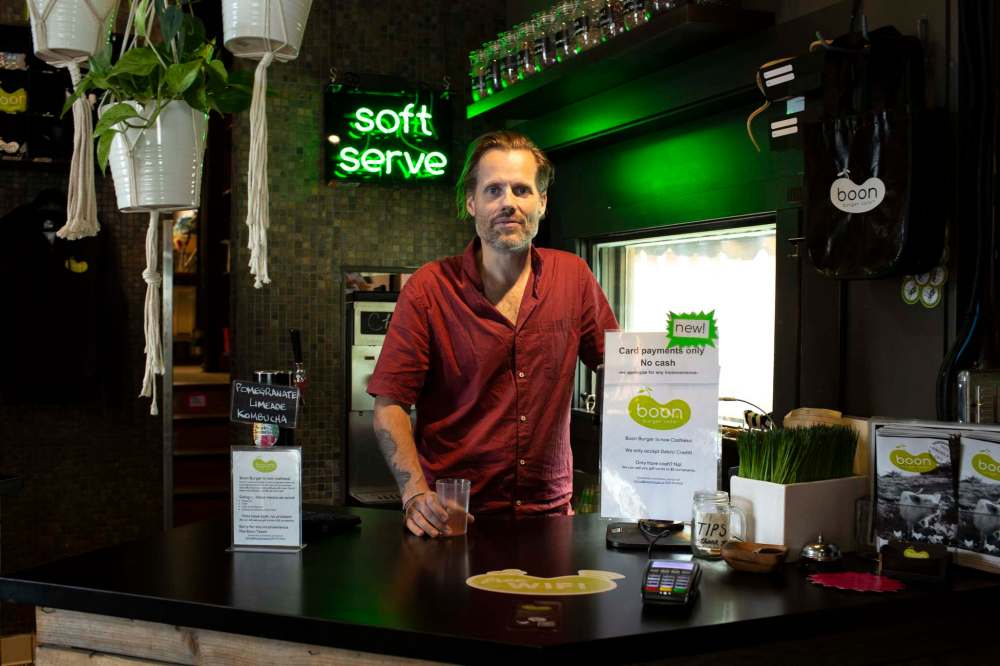
Almost 40 per cent of Manitobans don’t carry cash on a regular basis, according to a recent Prairie Research Associates survey that asked consumers what’s in their wallets. But of the 1,400 random Manitobans polled in April, only 25 per cent said they supported transitioning to a cashless society.
The anti-cashless sentiments don’t make Sohlberg want to take down the sign that reads, “Boon Burger is now cashless!” on his restaurant counter, though.
“I know cash is on its way out and we’re just a little bit ahead of the curve. Why wait?”
Any Canadian vendor can refuse to accept bank notes and coins as a method of payment, but Sohlberg said customers often ask him if the restaurant’s new practice is legal.
‘People don’t like change (but) it’s just the way things are going’– Boon Burger owner Thomas Sohlberg
“How you pay for a good or service (by cash, credit card, or in some other manner) is a matter of private agreement between you and the seller, and must be acceptable to both,” Bank of Canada spokeswoman Amélie Ferron-Craig wrote in a statement to the Free Press.
A number of airlines and businesses in Canada have already stopped accepting cash. And instead of cheques, many businesses have switched to e-transfers, said Don Leitch, president and chief executive officer of the Business Council of Manitoba.
No chips (cards), cash only
There are cashless businesses, places that accept everything from coins to Apple Pay, and then there are old-fashioned establishments, where the tills open and close constantly with cash-only transactions.
The Dairi-Wip Drive-In in St. Boniface is one of them.
There are cashless businesses, places that accept everything from coins to Apple Pay, and then there are old-fashioned establishments, where the tills open and close constantly with cash-only transactions.
The Dairi-Wip Drive-In in St. Boniface is one of them.
For the last 60 some years the fast food joint has been in the Lambos family, employees have only accepted cash, manager Dean Lambos said. “It’s a matter of ease, convenience and charges. We try to serve people as fast as we can, in and out,” he said.”Our business is the type where it gets super busy in waves and it’s really annoying to have those machines, the way it’s set up with the cables and everything, and then there’s issues with them because cards aren’t working, sometimes they run out of paper, the internet goes down. It just creates a bit of a backlog.”
Profit margins are already slim for small ticket items like soft drinks and ice cream cones, he added, so the business isn’t willing to absorb the debit machine transaction costs, with some banks charging 50 cents per debit sale.
“I’m 53 and I remember when Interac cards came out and I thought, ‘Oh, that’s pretty cool.’ The big thing was that you won’t get robbed, you won’t lose your money,” he said.
Perhaps unsurprisingly, Visa has released a number of reports about how everyone benefits when cash is eliminated in society. Consumers, businesses and governments make gains in a cashless society because card transactions increase efficiency, convenience and minimize crime, Visa’s latest cashless cities report reads. (Ottawa and Toronto were listed as “digital leaders” in the credit card giant’s Cashless Cities: Recognizing the Benefits of Digital Payments report.)
Visa has gone as far as paying businesses to go cashless. In 2017, Visa gave 50 small U.S. businesses $10,000 each to go cashless.
The campaign didn’t go unnoticed, according to Chris Chandler, president of the ATM Industry Association. Chandler said such initiatives have created the perception cashless societies are much closer to reality than they are.
“People do want choice. Cash is by far the most widely used payment method for purchases under $20,” he added.
Dairi-Wip Drive-In customers with only cards in their wallets are told about the ATM at the hotel next door. But while cash is simply the way it’s always been at the restaurant, Lambos said he realizes they’ll have to start accepting cards “sooner or later.”
“I read an article that people in Sweden are putting microchips under their skin, so I have no idea where the world’s going to go,” he said.
Cash has also been the only form of payment at VJ’s Drive Inn in downtown Winnipeg for “many, many years,” said Gus Razos, co-owner of the famous hamburger joint. Contrary to Visa’s reports, Razos said card transactions would actually slow down his fast-paced restaurant service —just like at the Dairi-Wip Drive-In.
Not only would machine crashes during a busy lunch rush slow down service, he said, but also business overall because no one wants to wait long for an order of fries.
— Maggie Macintosh
Both cash and cheque transactions have been in decline over the last 15 years, Leitch said, adding “the demise of the penny” five years ago is a prime example.
“Now when you look in any coffee shop line the vast majority of payment is all by plastic,” he said.
Before the new Boon Burger policy, Sohlberg said about 20 per cent of people paid with cash out of the 150 to 200 daily transactions at the restaurant. Since most of those customers also had cards, the owner launched a cashless trial. On May 1, he said Boon Burger “essentially” started accepting only debit and credit.
After two months without backlash, Sohlberg said he plans to officially phase out all cash transactions in one year. Until then, the three per cent of customers who show up with only bills and coins can buy a restaurant giftcard for a set amount, without receiving any physical change.
“We’ve been broken-in to a number of times and we’ve had some internal theft, and not only that, but there’s just so much training and vulnerability that we had to expose ourselves to by accepting cash,” Sohlberg said.
Between maintaining floats in two cash trays, stocking coins in the till and doing daily deposits, he said running a business that accepts cash is a “staggering” amount of work. Considering that, and his belief Canadian society will eventually be cashless, he didn’t see the point in dragging out the process.
Across the Atlantic, some entire European countries are already almost cashless. In Sweden, 80 per cent of all transactions are made by cards, according to a Swedish government website.
The cashless trend in Europe is what Nicholas Borodenko, a partner at Prairie Research Associates, said influenced he and his colleagues to survey Manitobans about their wallets’ contents. When the results came in, Borodenko said Manitobans’ views on cash were surprisingly different from Swedish ones.
“There are more people opposed to going to a cashless society than in favour of it, which is somewhat surprising given how rarely most people seem to use it. There’s a significant group of people who don’t even carry (cash) at all.
“Even those who do, they don’t use it all that often. Typically, they’ll use it on average for two out of 10 purchases.”
Of those who don’t regularly carry cash, a big chunk said they still wanted to have the option to use cash, Borodenko said, adding that statistic was “perplexing” since a cashless society wouldn’t impact those people in “any meaningful way.”
The researchers found Manitobans age 18 to 29 were least likely to report using cash, while those 65 and older were the most likely to use it. The results also show women are less likely to carry cash than men.
An anti-technology sentiment and physical budgeting are two of the main reasons Borodenko said he suspects Manitobans are anti-cashless. The initial reaction to any major change in society is also often negative, he said, adding it takes time for people to accept new ideas, so PRA will return to the cashless question in a few years.
The clash over cash
Abdikheir Ahmed is calling on Winnipeggers to boycott cashless businesses.
“It’s a way to discriminate (against) people who are not caught up on the cashless trend,” said Ahmed, the director of Immigration Partnership Winnipeg.
Abdikheir Ahmed is calling on Winnipeggers to boycott cashless businesses.
“It’s a way to discriminate (against) people who are not caught up on the cashless trend,” said Ahmed, the director of Immigration Partnership Winnipeg.
“I think every sensible person should boycott use of those stores in solidarity.”
An anti-cashless movement has formed alongside the global cashless push. Advocates for marginalized groups like Ahmed see the cashless movement as elitist.
Eliminating cash affects newcomers and people of all sorts who don’t have bank accounts or access to banking supports, he said, adding that every time a business decides to go cashless, such people have one less option when it comes to shopping.
Some Winnipeggers also simply don’t have any ID so they can’t possibly set up a bank account, Louise Simbandumwe, co-director at SEED Winnipeg.
SEED Winnipeg offers financial services that aim to empower low-income Winnipeggers such as the ID Fund program, which helps participants both apply for and pay for identification cards.
“For a lot of us, we know where we were born, we’re very connected to our families, but that’s not the case for everyone. If someone lost their ID or they never had a birth certificate in the first place, being able to get an ID in the first place can be very challenging,” she said.
About 80 per cent of the ID Fund’s participants are Indigenous so it’s evident family disruptions — often a product of colonialism, residential schools and the ‘60s Scoop — have a significant impact on who can and can’t get a credit card, Simbandumwe said.
Cash should always be an option, she said, adding it’s especially important government services can be accessed with physical money.
A cashless society would only “highlight the digital divide” by creating “even more barriers” for vulnerable populations, she said.
Josh Brandon, a community animator at the Social Planning Council of Winnipeg, said that many low-income Winnipeggers rely on cash and fringe banking services like payday lenders and pawn shops.
Brandon said a cashless city would mean Winnipeggers who collect bottles or squeegee cars in exchange for a few dollars would lose a way to make ends meet.
“For a lot of us, we would see the convenience of moving to a cashless society but unfortunately, it would just marginalize even more some of the most vulnerable,” he said.
Advocates aren’t the only ones who oppose the idea of scrapping coins and bills.
If cash dissappeared, the demand for ATM machines would too.
Rapid Cash ATM operates more than 1,000 ATM machines across Canada; the company has machines at the Forks for shoppers to use.
“Cash is completely inclusive. It doesn’t discriminate against any of the demographics in society,” said Bill Eaton, president of Rapid Cash ATM.
Eaton said he’s not worried about cash going away anytime soon though.
“If you look at our ATMs year over year, transaction history is pretty constant.”
— Maggie Macintosh
Considering the Prairies are “a bit conservative,” Sohlberg agreed it’s no surprise Manitobans aren’t ready to think about a cashless society yet. “People don’t like change,” he said, followed by a chuckle about his unintentional play on words, “(but) it’s just the way things are going.”
John Graham, the Retail Council of Canada director of government relations for the Prairies, said the council isn’t aware of any cashless businesses operating in Manitoba today.
“Cash is still commonly used. Perhaps as internet sales grow and new forms of payment develop broader acceptance this may change, however, we don’t believe this is a near future reality,” Graham said about the prospect of a province without cash transactions.
During separate interviews, neither Sohlberg, Borodenko, nor Leitch said they could think of any cashless businesses in the province either —aside from Sohlberg naming his own restaurant.
“We’re a 100 per cent vegan business on the Prairies,” he said.
“We’re used to sticking out like a sore thumb.”
maggie.macintosh@freepress.mb.caTwitter: @macintoshmaggie
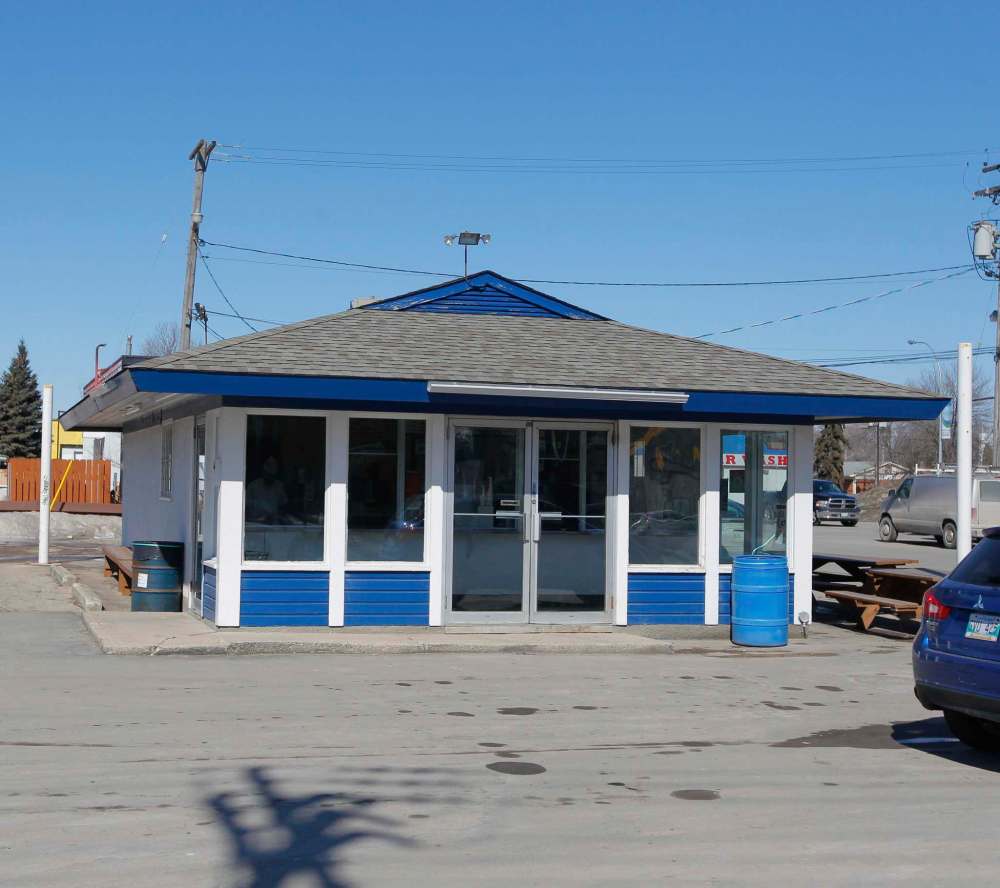
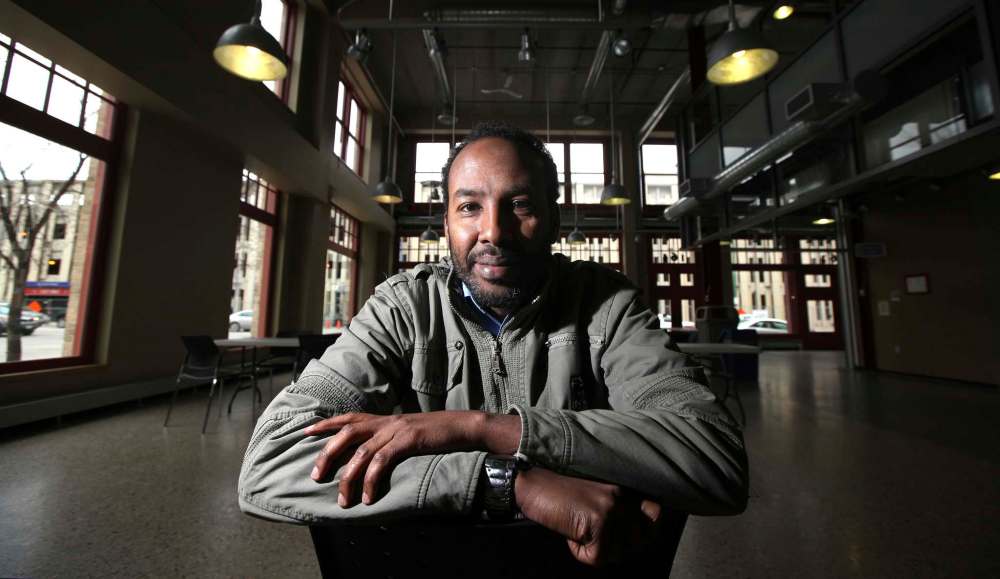

Maggie Macintosh reports on education for the Winnipeg Free Press. Funding for the Free Press education reporter comes from the Government of Canada through the Local Journalism Initiative.
Our newsroom depends on a growing audience of readers to power our journalism. If you are not a paid reader, please consider becoming a subscriber.
Our newsroom depends on its audience of readers to power our journalism. Thank you for your support.




